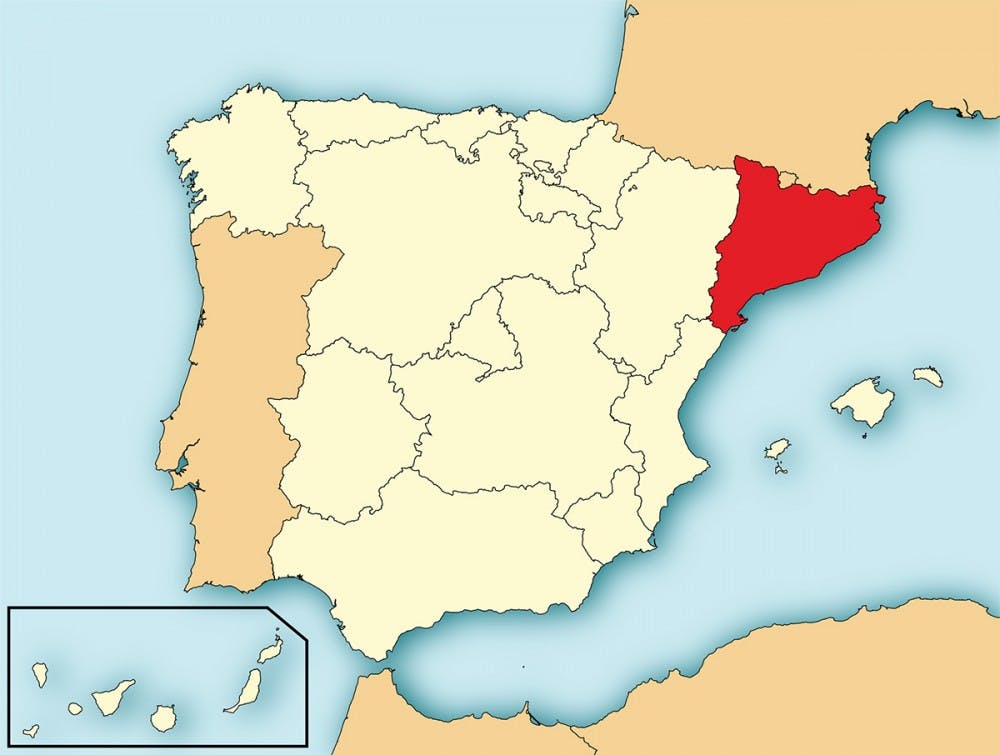On Oct. 27, the Catalan Parliament declared independence from Spain. Within hours of the vote, Spanish Prime Minister Mariano Rajoy instructed the regional government of Catalonia to dissolve, with Catalonia’s elected officials to be replaced with elections in December. The movement towards secession has grown in recent years because of Spain’s economic troubles and the perception among certain Catalans that national government does not respect their language and culture. The Spanish Constitution does not allow for regions like Catalonia to unilaterally declare independence, and arguments coming from Rajoy’s administration focused on maintaining the rule of law present a strong case for dismissing the vote. The significance of the vote should not be discounted, but should instead encourage the national government in Madrid to seriously consider supporting Catalan independence by amending the Spanish Constitution.
Early in October, the regional government of Catalonia held a referendum for independence from the rest of Spain. Violent clashes broke out between protesters and national police, and Spain’s highest court eventually ruled the referendum illegal. However, Spain should respect the democratic process and allow for fair elections to gauge support in Catalonia for independence through amending the Constitution. Support cannot be accurately gauged until fair and open elections take place. Respecting the democratic process may even work in Madrid’s favor should Catalans vote against independence, similar to how the people of Scotland voted to stay in the United Kingdom after a referendum on Sept. 18, 2014.
The government of Catalonia makes legitimate arguments in favor of secession. Catalans have historically perceived the region as a distinct entity with its own language and culture, and have consistently had their own regional government. Additionally, there is historical precedent for the central Spanish government oppressing Catalan self-governance and culture, most recently under the rule of dictator Francisco Franco. Some observers even viewed the clashes between national police and Catalan protesters in response to the Oct. 1 referendum on independence as reminiscent of Franco’s brutal tactics.
In addition to political and cultural discrepancies between Catalonia and the national government, economic factors exacerbated by the recent economic downturn in Spain, have increased momentum for the independence movement. Catalonia has the highest GDP of any Spanish region, and Catalans account for one fifth of national tax revenue despite making up up only 16 percent of Spain’s total population. Proponents of secession often cite the fact that Catalonia only receives 14 of the 20 percent it contributes in tax dollars back in public services.
Ultimately, in addition to tangible reasons for independence such as differences in language and culture and economic benefit, the people of Catalonia have the human right of self-determination, which is key in protecting the freedoms of underrepresented, often minority groups. The Charter of the United Nations affirms that “All peoples have the right to self-determination. By virtue of that right they freely determine their political status and freely pursue their economic, social and cultural development.” While the value of such arguments as the cultural differences between Catalonia and the rest of Spain and the discrepancy between Catalonia’s economic contributions and returns should be debated, Catalonia’s right to independence is absolute — even though the national government and Spanish Constitution do not respect it.
Legitimate arguments in favor of continued unity in Spain include the fact that even though economic discrepancies and cultural differences exist, Catalonia may benefit from greater political power as a part of Spain. However, it is up to the people of Catalonia to weigh the benefits and disadvantages of independence. The United Kingdom had to make a similar decision on June 23, 2016, when 51.9 percent of voters decided to leave the European Union. Although the United Kingdom sacrificed a certain degree of political power which came with the greater European Union, voters decided increased autonomy was worth the cost.
The international community — including the United States — should encourage the Spanish government to respect the human rights of the Catalan people and allow for fair elections by revising the Spanish Constitution. Should Catalonia vote to leave Spain in a fair election, that decision must be respected — not only to allow the people of Catalonia to govern themselves as they see fit, but also affirm the importance of self-determination in an increasingly globalized world.
Thomas Ferguson is an Opinion columnist for The Cavalier Daily. He can be reached at opinion@cavalierdaily.com.







